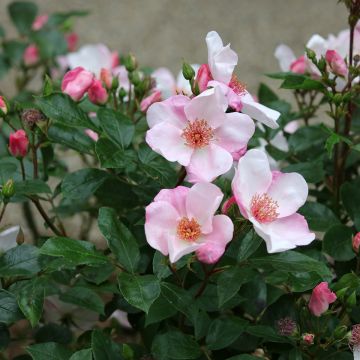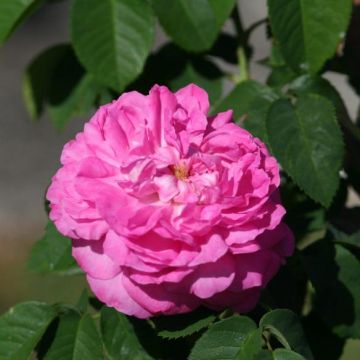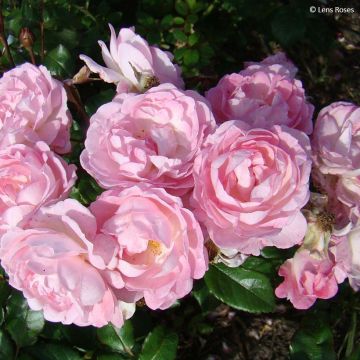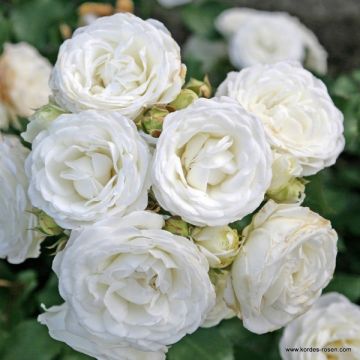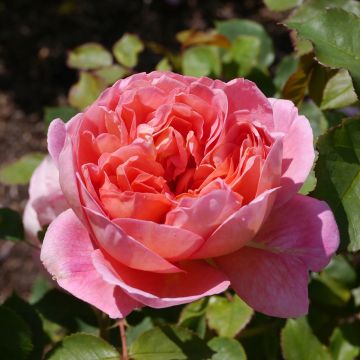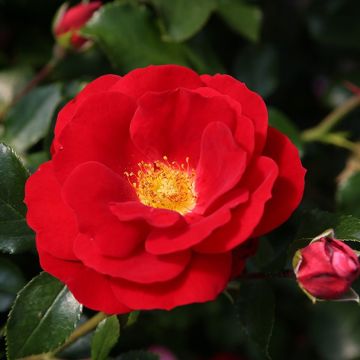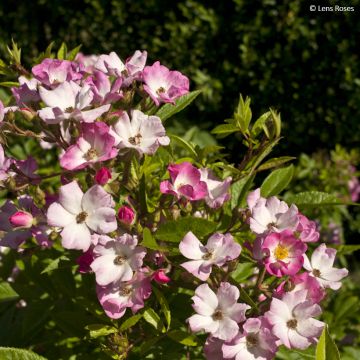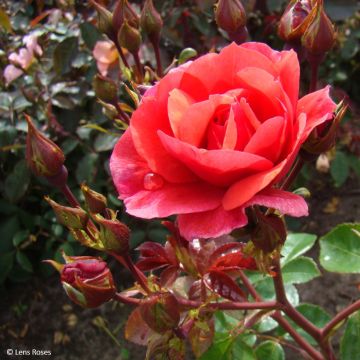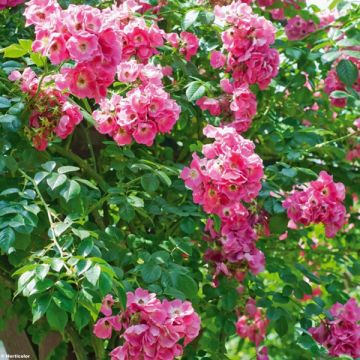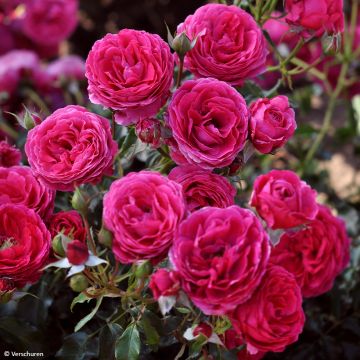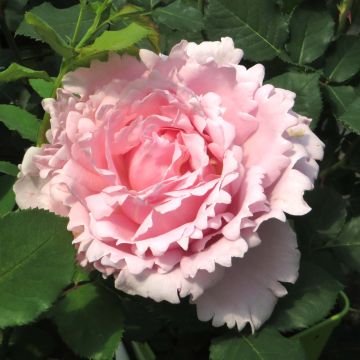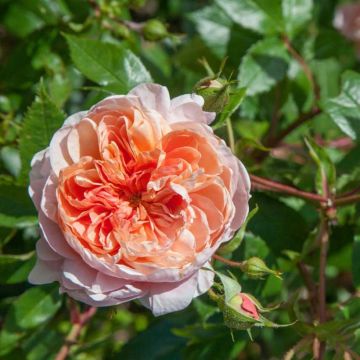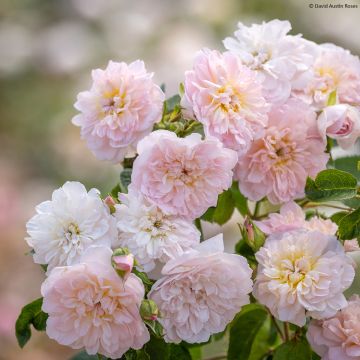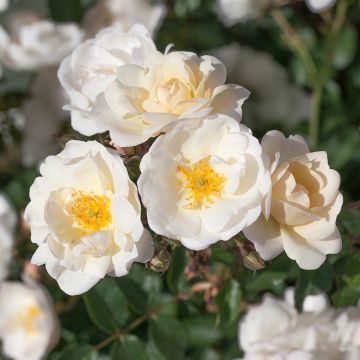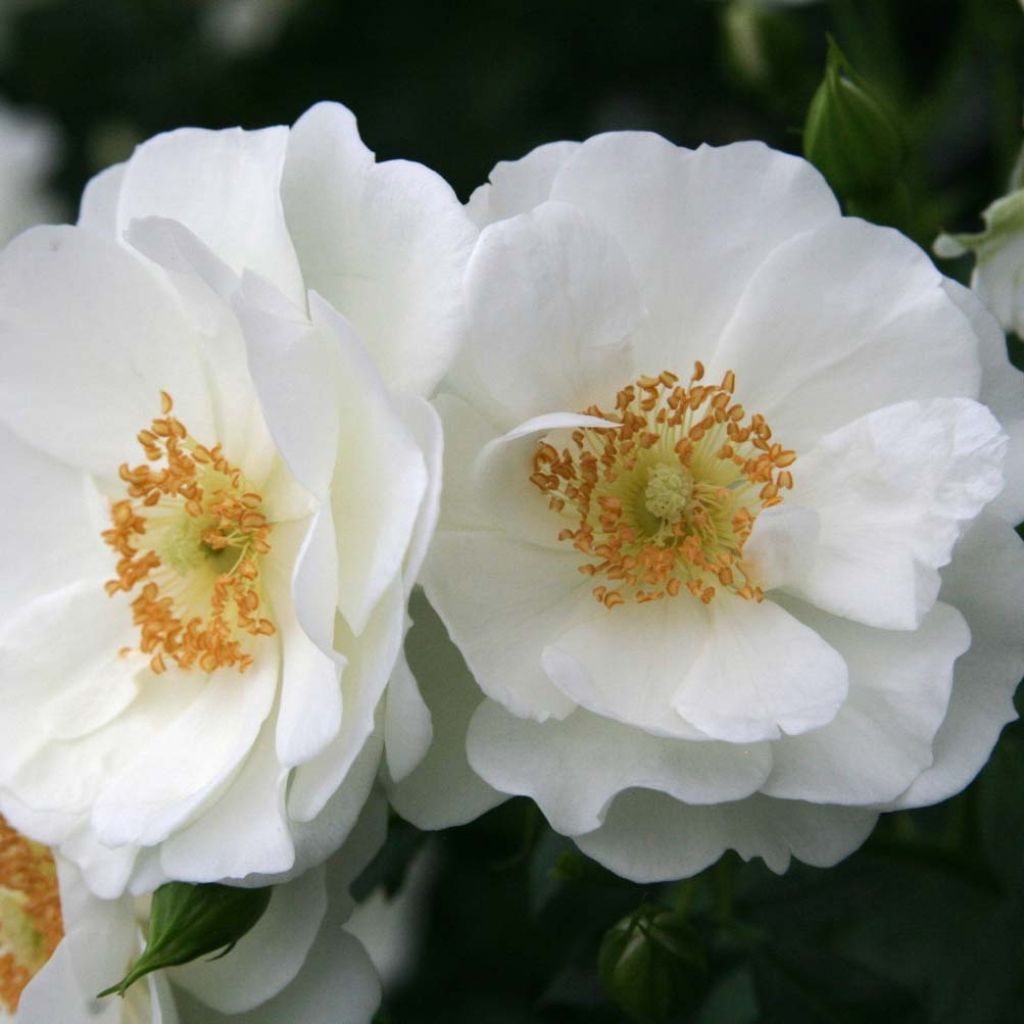

Rosa Rigo Rosen Innocencia Ground Cover Rose
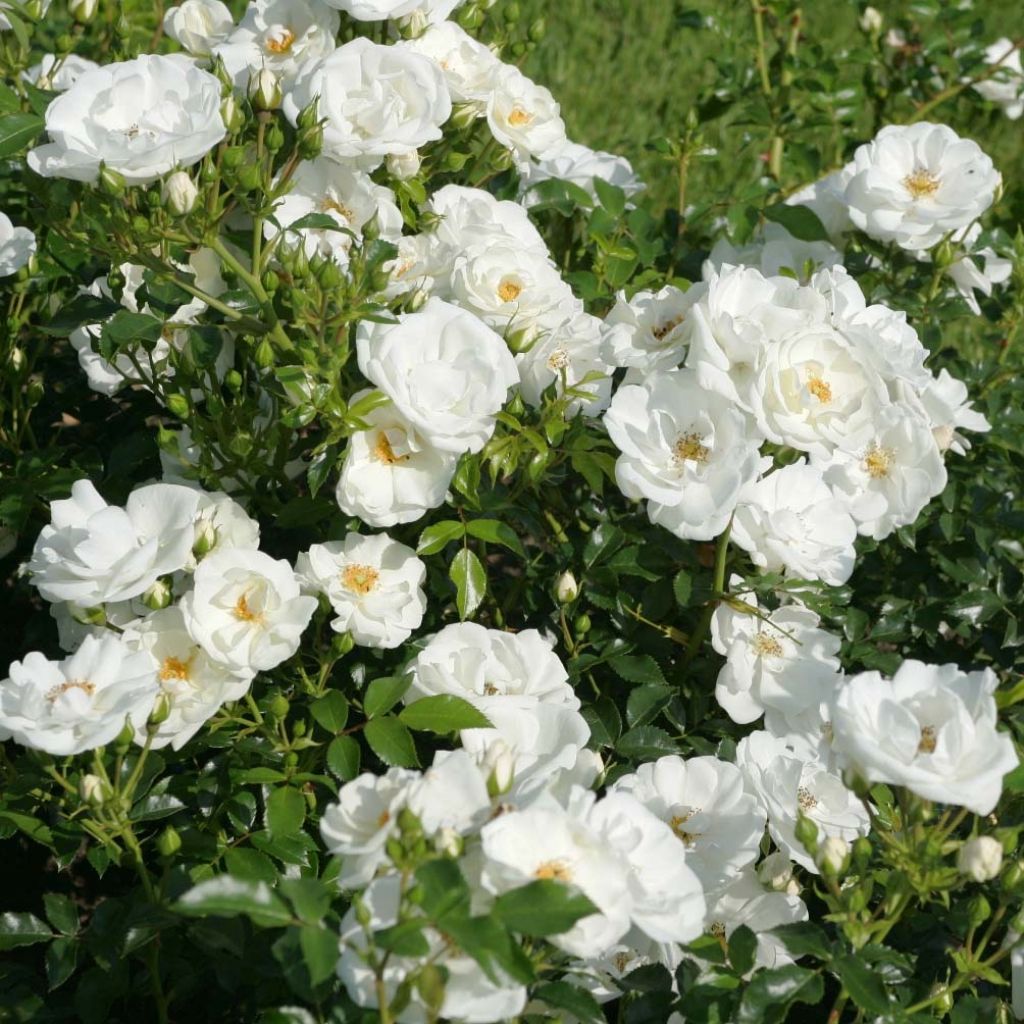

Rosa Rigo Rosen Innocencia Ground Cover Rose
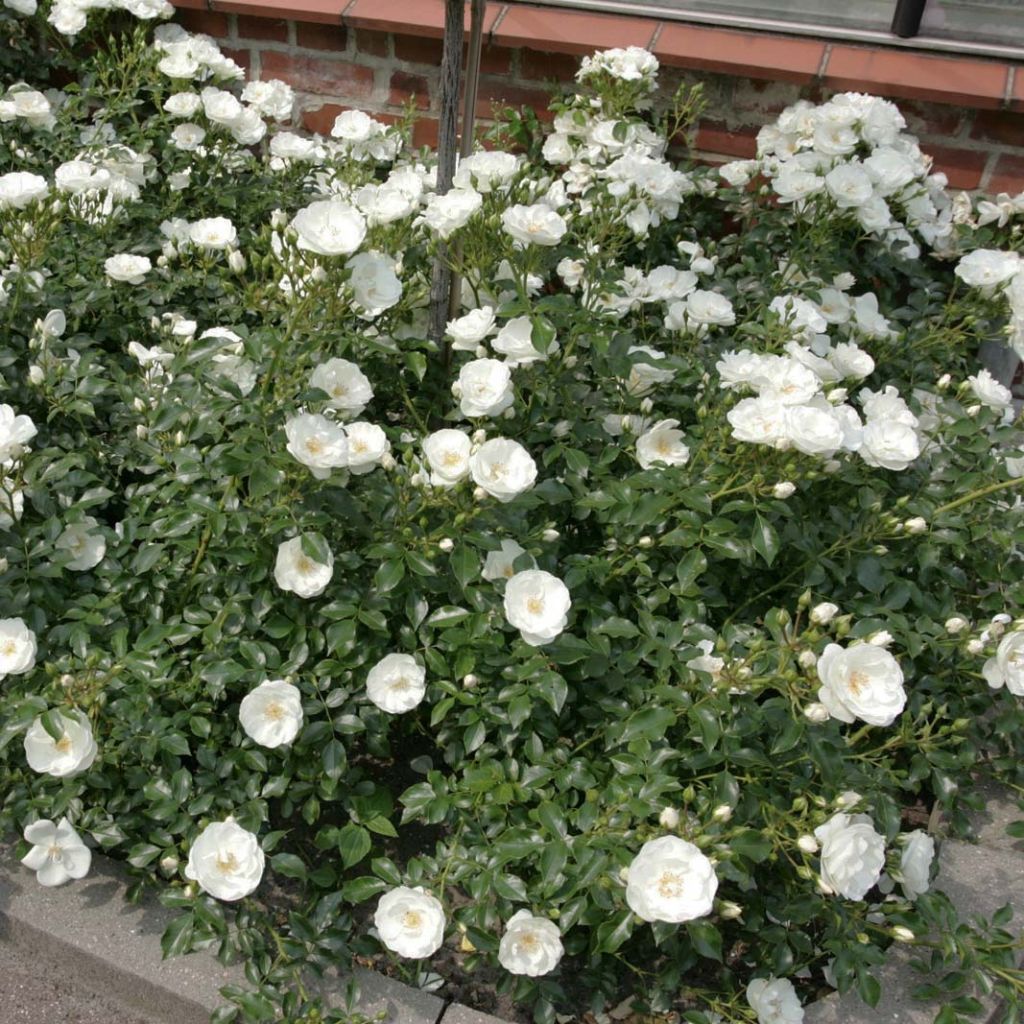

Rosa Rigo Rosen Innocencia Ground Cover Rose
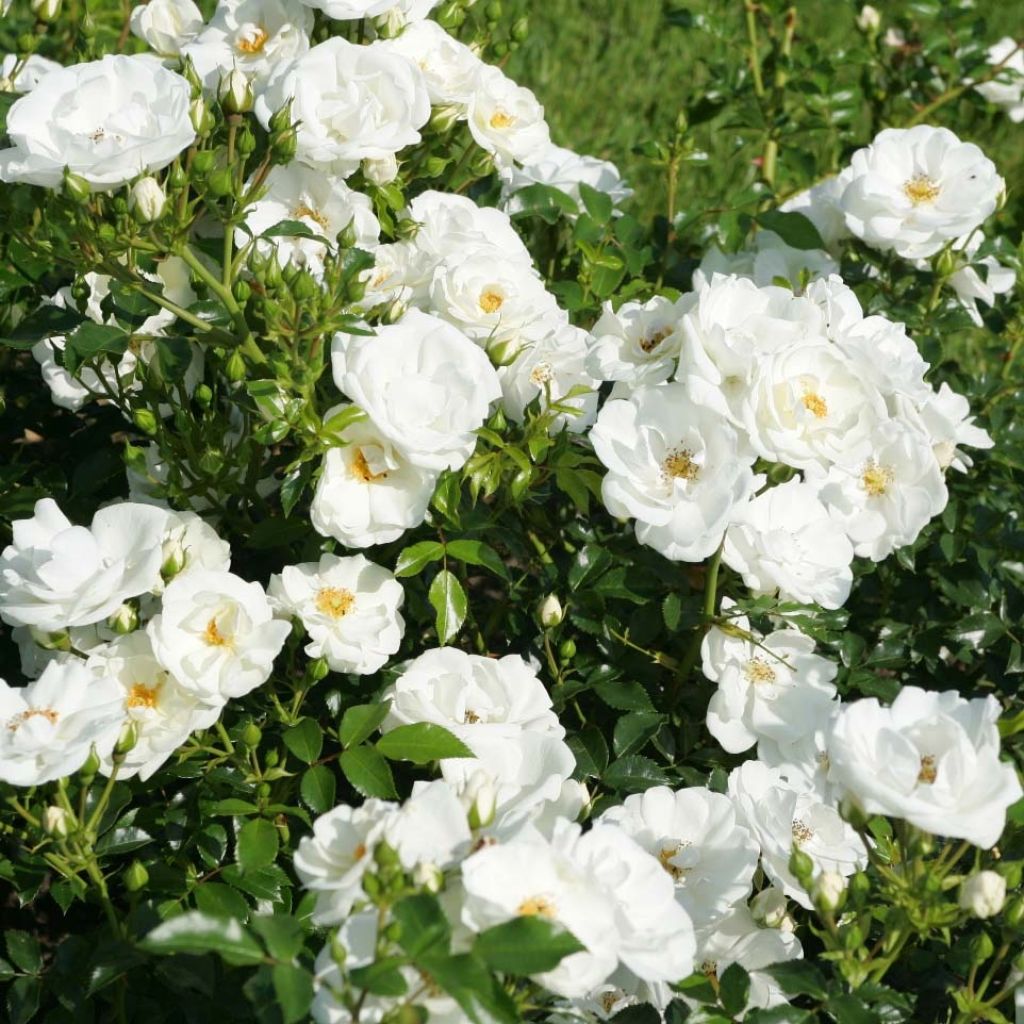

Rosa Rigo Rosen Innocencia Ground Cover Rose
Rosa Rigo Rosen Innocencia Ground Cover Rose
Rosa x floribunda Rigo Rosen® Innocencia® Korstarnow
Floribunda Rose, Korstarnow
The cutting I received seems healthy. Planted close to an Albizia julibrissin "Summer Chocolate", now I'm waiting for it to take root...
Thierry, 09/10/2024
This item cannot be shipped to the selected country
Delivery charge from €5.90
Delivery charge from €5.90
Delivery charge from €5.90
Delivery to Corse prohibited
More information
Schedule delivery date,
and select date in basket
This plant carries a 24 months recovery warranty
More information
We guarantee the quality of our plants for a full growing cycle, and will replace at our expense any plant that fails to recover under normal climatic and planting conditions.
From €5.90 for pickup delivery and €6.90 for home delivery
Express home delivery from €8.90.
From €5.90 for pickup delivery and €6.90 for home delivery
Express home delivery from €8.90.
From €5.90 for pickup delivery and €6.90 for home delivery
Express home delivery from €8.90.
Delivery to Corse prohibited: UE law prohibits the import of this plant from mainland France to Corse as part of the fight against Xylella fastidiosa. Please accept our sincere apologies.
More information

Does this plant fit my garden?
Set up your Plantfit profile →
Description
The Rigo Rosen groundcover rose 'Innocencia' forms a beautiful cushion covered with white flowers with a golden heart, which scatter on the ground before fading into a carpet of white heart-shaped petals, creating a stunning effect. It has a plentiful and bright flowering that lasts until the first frost, enhanced by its glossy and abundant foliage of a vibrant green colour that remains decorative until the end of the season. A few small orange fruits follow the last flowers, adding to the charm of this excellent variety. This rose finds its place in all flower gardens; it is hardy, easy to grow, and almost maintenance-free. Its compact growth makes it ideal for growing in pots or containers to decorate the terrace or balcony.
The 'Korstarnow' Innocencia Rose is a German creation by Kordes, obtained in 2002 and distinguished by the highly selective German label ADR in 2003. It also received the Gold Medal in Rome in 2002 and the Silver Medal in Baden-Baden, Germany, and Le Roeulx, Belgium. It is part of a series of roses called Sans Contraintes, requiring very little maintenance, and of the 'Rigo Rosen' collection developed in partnership with 'Globe Planter', bringing together varieties selected for their genuinely exceptional disease resistance, low-growing habit and enthusiastic flowering in all regions. All Rigo-Roses have received the ADR label.
This 'Innocencia' variety belongs to the floribunda rose family, with flowers grouped in bouquets and the groundcover rose category due to its low and spreading habit. It quickly forms a dense dome of vegetation, reaching about 50 cm (20in) in all directions. It is covered with decorative foliage, a beautiful vibrant green colour that darkens in summer, with finely toothed shiny leaflets on the edges. Its flowering is abundant and regularly repeats from June to October in successive waves if the soil remains somewhat moist in summer. The semi-double corollas, 5-6 cm (2in) wide, are relatively flat cups of 9 to 18 petals gathered in bouquets of 4 to 5 flowers. The buds, surrounded by long apple-green sepals, open into flowers with slightly rounded petals in shells, arranged in 5 to 5 rows. Their pure white colour sometimes appears tinged with butter yellow at the base, depending on the lighting. They open to reveal a beautiful heart of yellow stamens. Pollinated by insects, they produce small round orange fruits, the hips. The deciduous foliage turns yellow before falling in autumn.
The 'Innocencia' groundcover rose adapts to all soils that are not too dry and to all climates, making it suitable for many regions. It is best placed in the morning sun in hotter climates but blooms better in full sun in cooler areas. It is ideal for a border for pathways or flower beds above a wall or on a large slope where it will cover the ground. It can also be planted in groups of 3 specimens, arranged in a triangle, or as a solitary plant on a lawn. Plant it en masse or alongside other groundcover roses with pink, yellow, red, or orange flowers to highlight the path, shrub, and perennial beds, whether light or opulent. For example, it can be paired with perennial geraniums (Geranium Blue Cloud, Anne Folkard, Nimbus, Orion), bellflowers (lactiflora, rapunculoides), catmints, delphiniums, foxgloves, or other perennial salvias. Very easy to combine, it will happily accompany shrub roses, regardless of their colour, in a romantic garden.
Report an error about the product description
Rosa Rigo Rosen Innocencia Ground Cover Rose in pictures
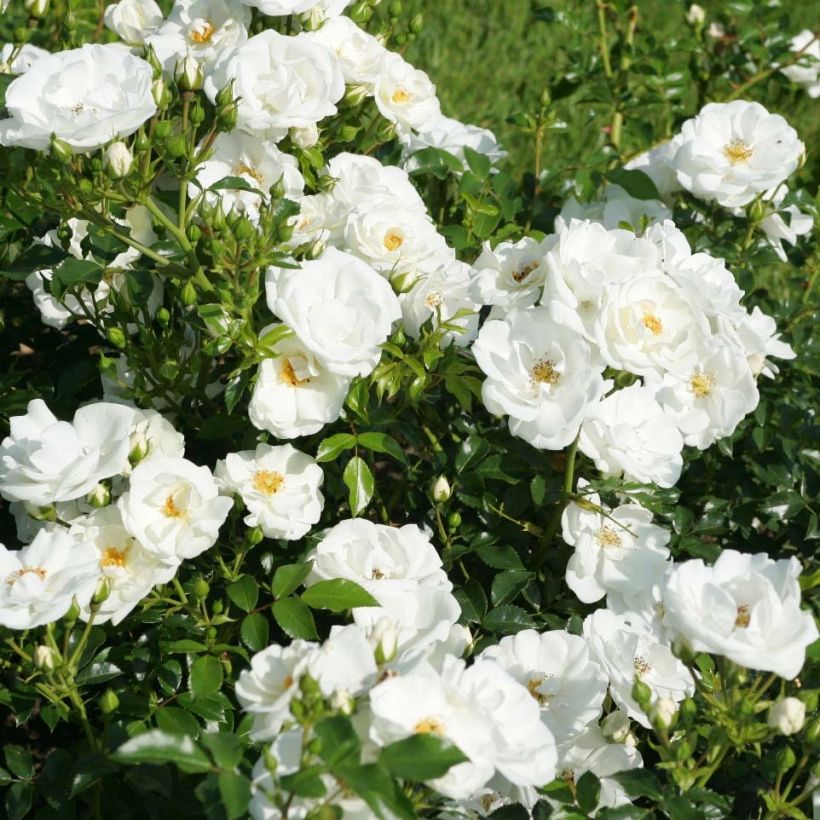

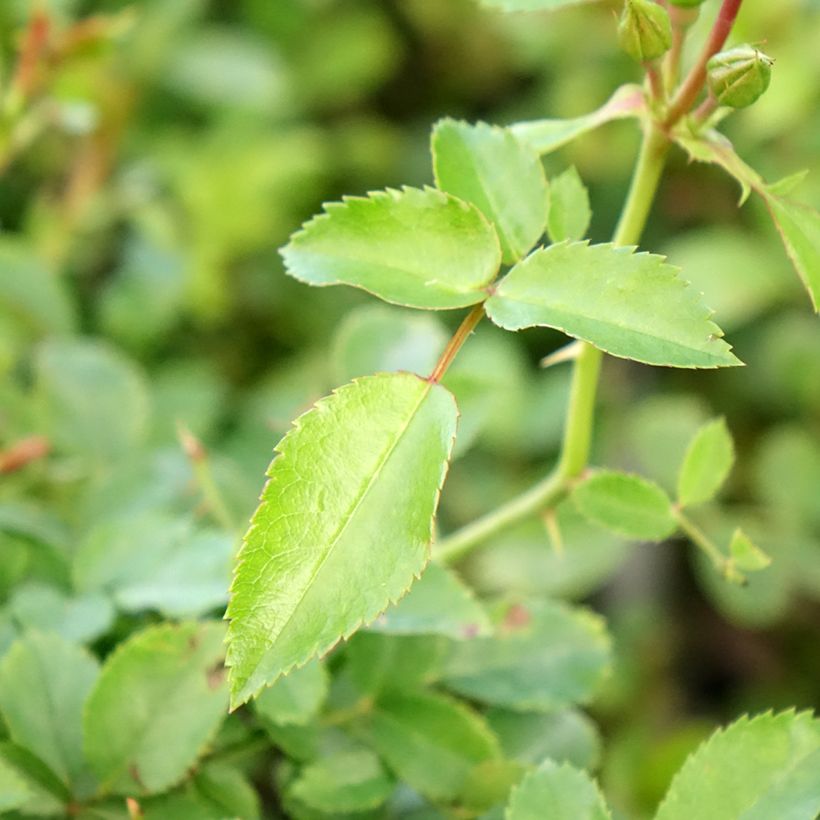

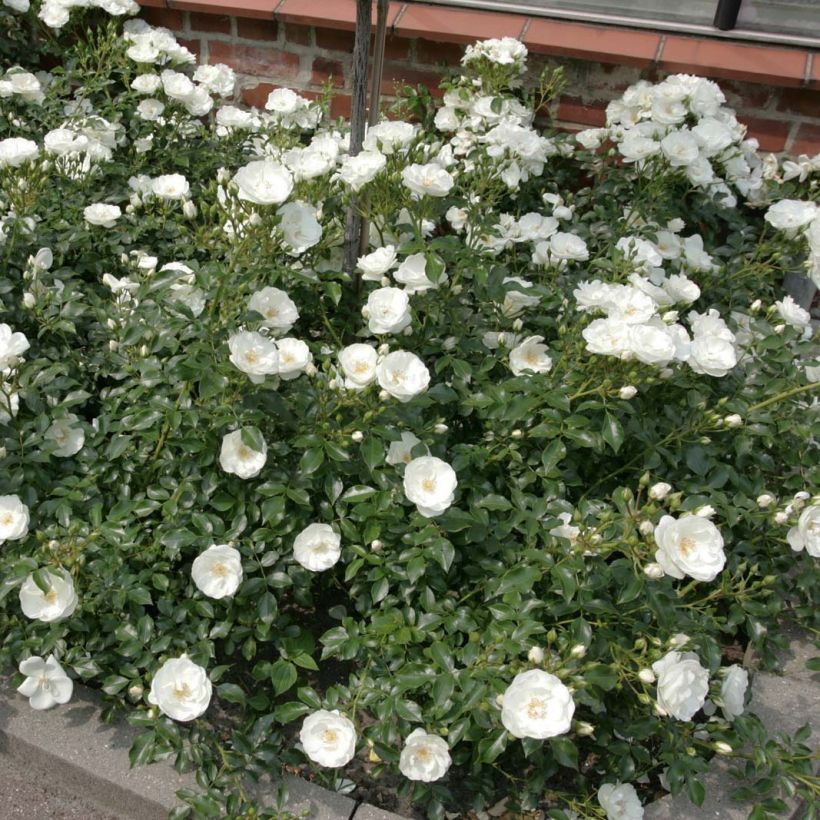

Plant habit
Flowering
Foliage
Botanical data
Rosa
x floribunda
Rigo Rosen® Innocencia® Korstarnow
Rosaceae
Floribunda Rose, Korstarnow
Cultivar or hybrid
Other Polyantha clustered Roses
Planting and care
Plant it in well-drained soil between November and March. Roses like clay soil, but if the soil is sandy, compact or dry, add compost to the planting hole. Don't plant it in waterlogged soil in winter. Place it in a sunny or partially shaded area. Roses need a lot of nutrients, so use a specific fertiliser at the start of vegetation and throughout the flowering period. To encourage repeat flowering, remove faded flowers regularly. Prune the stems by about one-quarter of their length (from 4 to 6 buds from the base of the stem) in March. Prune above an outward-facing bud so that the bush can fill out and the branches don't become tangled in the centre of the canopy. Floribunda rose varieties are more vigorous and floriferous than large-flowered rose varieties.
Roses may develop unsightly spots at the end of summer, but this is a natural occurrence and doesn't harm the rose's growth.
Planting period
Intended location
Care
-
, onOrder confirmed
Reply from on Promesse de fleurs
Roses by purpose
Haven't found what you were looking for?
Hardiness is the lowest winter temperature a plant can endure without suffering serious damage or even dying. However, hardiness is affected by location (a sheltered area, such as a patio), protection (winter cover) and soil type (hardiness is improved by well-drained soil).

Photo Sharing Terms & Conditions
In order to encourage gardeners to interact and share their experiences, Promesse de fleurs offers various media enabling content to be uploaded onto its Site - in particular via the ‘Photo sharing’ module.
The User agrees to refrain from:
- Posting any content that is illegal, prejudicial, insulting, racist, inciteful to hatred, revisionist, contrary to public decency, that infringes on privacy or on the privacy rights of third parties, in particular the publicity rights of persons and goods, intellectual property rights, or the right to privacy.
- Submitting content on behalf of a third party;
- Impersonate the identity of a third party and/or publish any personal information about a third party;
In general, the User undertakes to refrain from any unethical behaviour.
All Content (in particular text, comments, files, images, photos, videos, creative works, etc.), which may be subject to property or intellectual property rights, image or other private rights, shall remain the property of the User, subject to the limited rights granted by the terms of the licence granted by Promesse de fleurs as stated below. Users are at liberty to publish or not to publish such Content on the Site, notably via the ‘Photo Sharing’ facility, and accept that this Content shall be made public and freely accessible, notably on the Internet.
Users further acknowledge, undertake to have ,and guarantee that they hold all necessary rights and permissions to publish such material on the Site, in particular with regard to the legislation in force pertaining to any privacy, property, intellectual property, image, or contractual rights, or rights of any other nature. By publishing such Content on the Site, Users acknowledge accepting full liability as publishers of the Content within the meaning of the law, and grant Promesse de fleurs, free of charge, an inclusive, worldwide licence for the said Content for the entire duration of its publication, including all reproduction, representation, up/downloading, displaying, performing, transmission, and storage rights.
Users also grant permission for their name to be linked to the Content and accept that this link may not always be made available.
By engaging in posting material, Users consent to their Content becoming automatically accessible on the Internet, in particular on other sites and/or blogs and/or web pages of the Promesse de fleurs site, including in particular social pages and the Promesse de fleurs catalogue.
Users may secure the removal of entrusted content free of charge by issuing a simple request via our contact form.
The flowering period indicated on our website applies to countries and regions located in USDA zone 8 (France, the United Kingdom, Ireland, the Netherlands, etc.)
It will vary according to where you live:
- In zones 9 to 10 (Italy, Spain, Greece, etc.), flowering will occur about 2 to 4 weeks earlier.
- In zones 6 to 7 (Germany, Poland, Slovenia, and lower mountainous regions), flowering will be delayed by 2 to 3 weeks.
- In zone 5 (Central Europe, Scandinavia), blooming will be delayed by 3 to 5 weeks.
In temperate climates, pruning of spring-flowering shrubs (forsythia, spireas, etc.) should be done just after flowering.
Pruning of summer-flowering shrubs (Indian Lilac, Perovskia, etc.) can be done in winter or spring.
In cold regions as well as with frost-sensitive plants, avoid pruning too early when severe frosts may still occur.
The planting period indicated on our website applies to countries and regions located in USDA zone 8 (France, United Kingdom, Ireland, Netherlands).
It will vary according to where you live:
- In Mediterranean zones (Marseille, Madrid, Milan, etc.), autumn and winter are the best planting periods.
- In continental zones (Strasbourg, Munich, Vienna, etc.), delay planting by 2 to 3 weeks in spring and bring it forward by 2 to 4 weeks in autumn.
- In mountainous regions (the Alps, Pyrenees, Carpathians, etc.), it is best to plant in late spring (May-June) or late summer (August-September).
The harvesting period indicated on our website applies to countries and regions in USDA zone 8 (France, England, Ireland, the Netherlands).
In colder areas (Scandinavia, Poland, Austria...) fruit and vegetable harvests are likely to be delayed by 3-4 weeks.
In warmer areas (Italy, Spain, Greece, etc.), harvesting will probably take place earlier, depending on weather conditions.
The sowing periods indicated on our website apply to countries and regions within USDA Zone 8 (France, UK, Ireland, Netherlands).
In colder areas (Scandinavia, Poland, Austria...), delay any outdoor sowing by 3-4 weeks, or sow under glass.
In warmer climes (Italy, Spain, Greece, etc.), bring outdoor sowing forward by a few weeks.

































